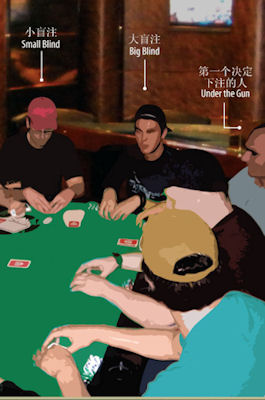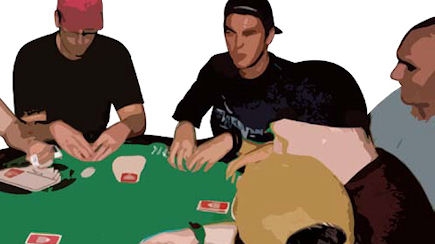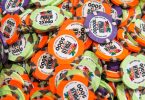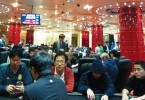This article first appeared in the Jan/Feb 2010 issue of World Gaming magazine.
In a battle field, the side with the better position has the advantage. Facing an enemy line from high ground, the enemy is in plain view. It becomes easier to make your battle plan.
Position in poker is as important as it is in the battle field. Good position gives you a greater opportunity to observe your opponents and a wider choice of hands to play. In Texas Hold’em, the best position is the dealer button. Under the rules of the game, the dealer button moves clockwise after every hand, allowing every player a chance to have the best position.
When you are on the button and decide to play your hand, you will act last in three of the four betting rounds on the hand. Preflop you signal your intention before the Small Blind and the Big Blind, but you still act last amongst the other players.

Small Blind, Big Blind and Under the Gun
On the flop, turn and river, you act after watching all other players act ahead of you, so you can play with appropriate tactics given the information you have gathered from their actions. If you have a monster, you can slow down, trying to get the most of your opponent’s chips. When you are merely drawing or having a mediocre hand, you may put out a big bet. Now you can either take down the pot, ending the hand quickly, or give up on the hand if you meet resistance.
Here is a hand I played in one of the cash games at the Grand Lisboa during the Macau Poker Cup Red Dragon Event.
Game: HK$20/$40, 6-handed, play at the table was a little tight with small action, the average pot size was about HK$400- $600.
I had the dealer button facing two limpers next to the blinds, with 3c 4c in my hand, I had about HK$5,800, and raised to HK$180. The first limper folded, second limper called. His chip stack was about HK$4,000.
The flop came: 2d 5c 8d.
The player before me bet HK$300, I called.
Turn was: Kc.
The other player bet again with HK$200; I raised to HK$750. He open folded his JJ.
I had a good position. My raise before the flop put pressure on all limpers. I took the first lead.
Thereafter my opponent bet smaller and smaller, but on the battle at the flop and the turn, I grabbed a crucial piece of information: his hand was not so strong on the flop and got weaker on the turn. He made his fear obvious. I had not made a hand, but if my read was correct, I should be able to take this pot down in short order. Even if I didn’t, there was still the river to come.
Of course, in this hand, my opponent made a couple of mistakes, and hadn’t correctly judged my intentions. In the end, I won, and the position I had on him played a big role.







